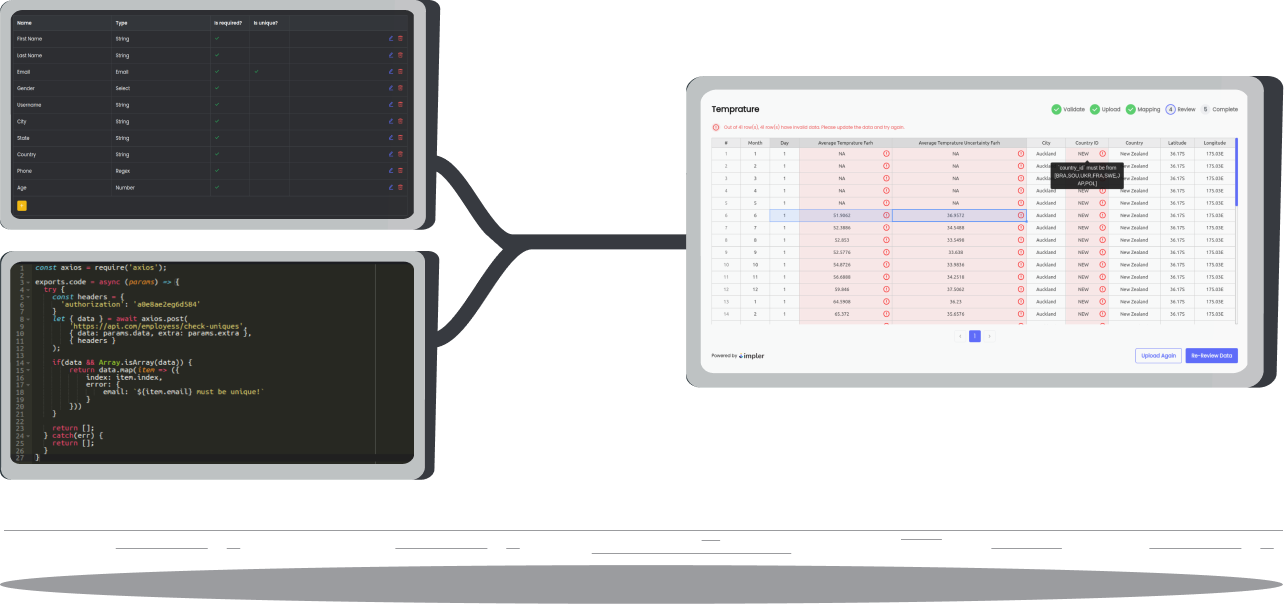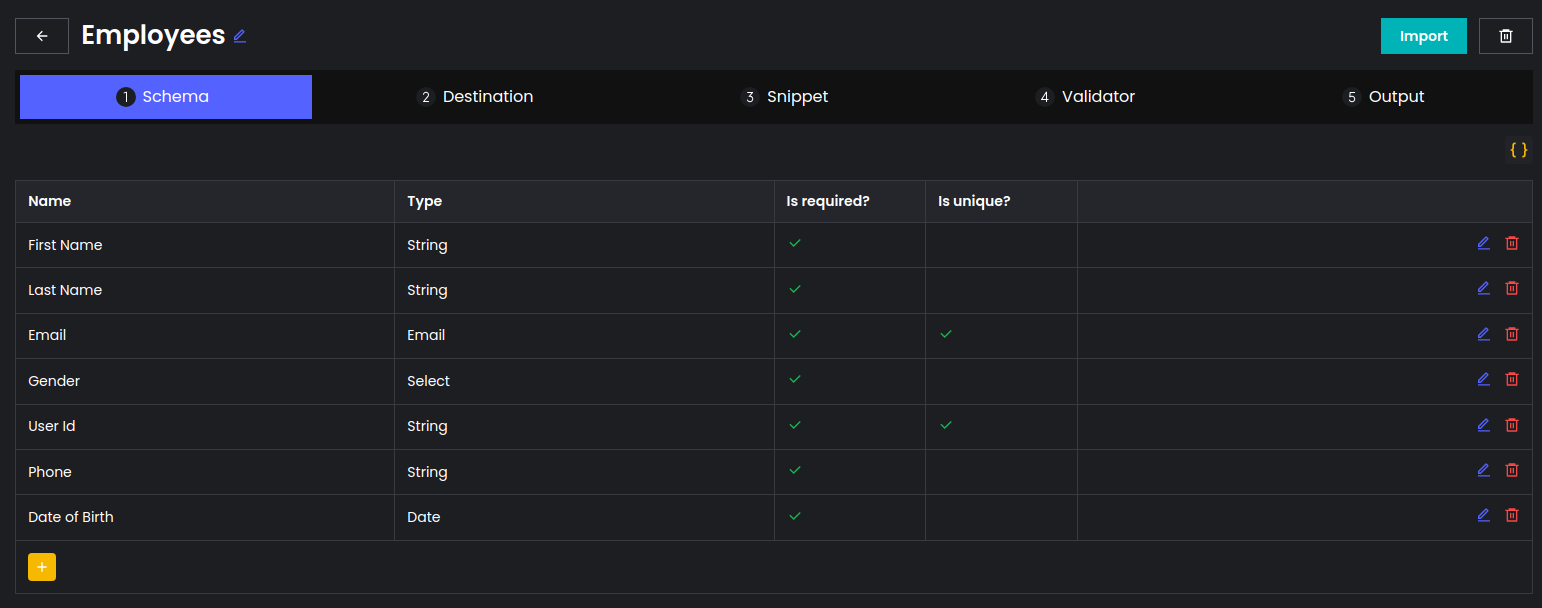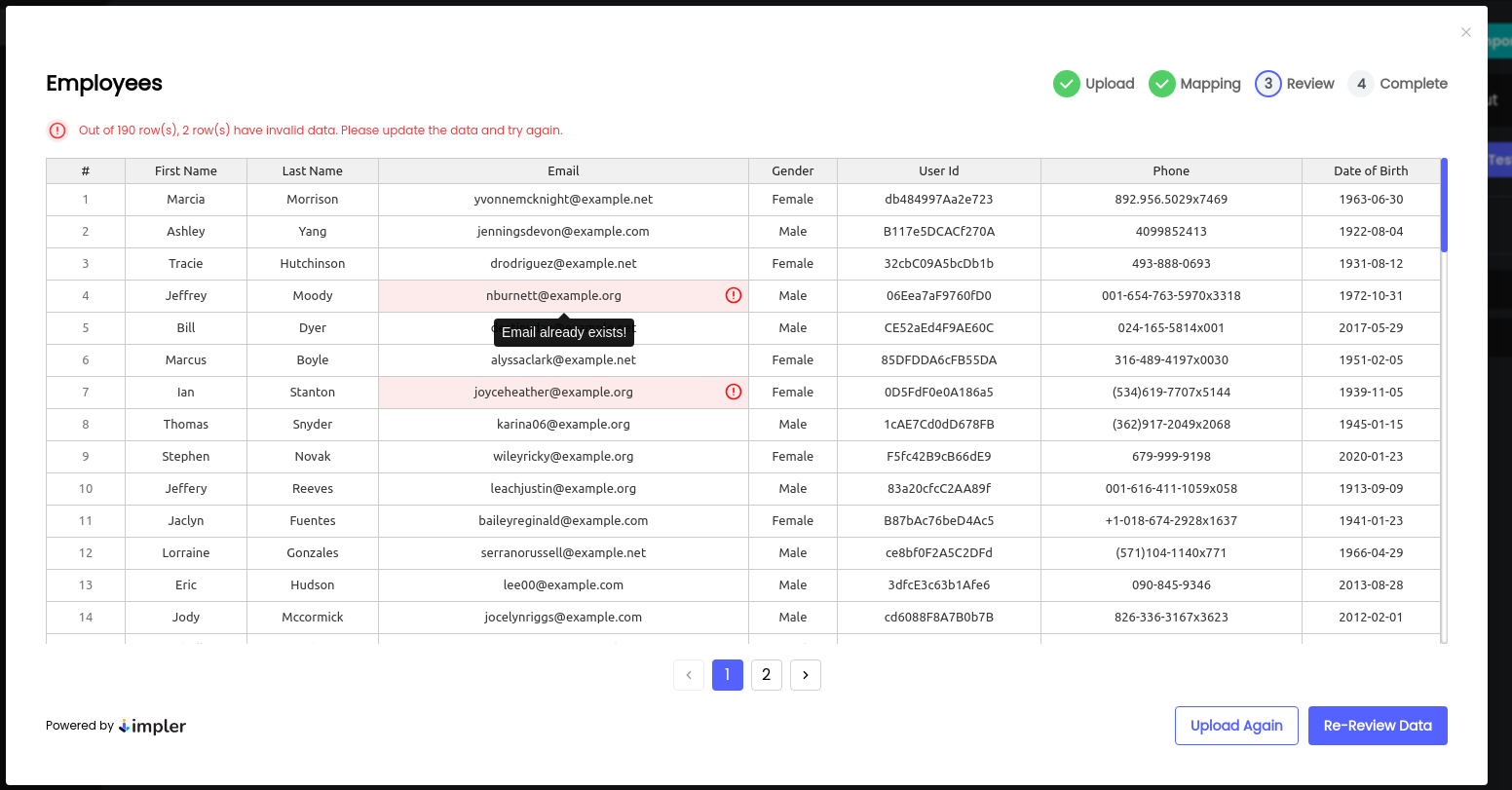Write your own validation logic with Validation Hooks
Impler offers default validations like Number, String, Select, Regex, Email, Double, Unique Validation and Required validations. But often these validations are not enough. SaaS products have needs for complex calidations that fits into needs of application. That's where Validation Hooks comes in picture and allows developers to write their own validation logic that fits into application needs.

In today’s data-driven landscape, accurate and reliable data import processes are crucial. The Hybrid Validation Engine addresses this need by providing a comprehensive suite of validation tools. It seamlessly combines static validation methods with the flexibility of custom validation logic, ensuring data integrity and reliability according to business needs.
The Hybrid Validation Engine is a feature-rich solution designed to cater to the diverse validation requirements of development and business teams. By offering both static and dynamic validation options, it guarantees data accuracy while maintaining adaptability to specific business needs.
Key Benefits
The advantages of the Hybrid Validation Engine are multi-fold. It offers:
Teams can enforce a wide range of validation rules, ensuring that imported data meets their needs.
The ability to write custom validation logic enables teams to implement intricate validation processes based on their unique requirements.
By automating validation processes, teams can save time and resources while ensuring data reliability.
Adaptable to various data import scales, from small sets to extensive databases.
Key Features
Text, String, Number, Email, Select, Regex, and Any types for immediate validation.
Custom code implementation for live checks and conditional validations.
Use Cases
Verifying that imported emails are unique by querying the existing database.
Requiring an employee ID only for active employee statuses during the import process.
Integration and Implementation
For seamless integration and effective implementation of the Hybrid Validation Engine, detailed documentation is provided:
Access comprehensive documentation for static validation here.
Explore the dynamic validation capabilities through detailed documentation here.
Moreover, the custom code playground within the platform offers IntelliSense support, alleviating the need to worry about data format intricacies. Notably, the platform simplifies the application of static validation on data, eliminating the necessity of writing extensive code.
To optimize your validation process and ensure efficiency, consider the following best practices:
Short validation code improves the speed of the validation process, enhancing overall efficiency.
Leverage the built-in Regex type instead of manually writing code to validate against regular expressions, streamlining validation processes.
Writing validation code in JavaScript and employing Axios to pull data from your backend API offers a robust and flexible approach, ensuring seamless integration with your existing systems.
By adhering to these best practices, teams can streamline their validation procedures, reduce complexities, and ensure a smoother integration of the Hybrid Validation Engine into their workflows.




